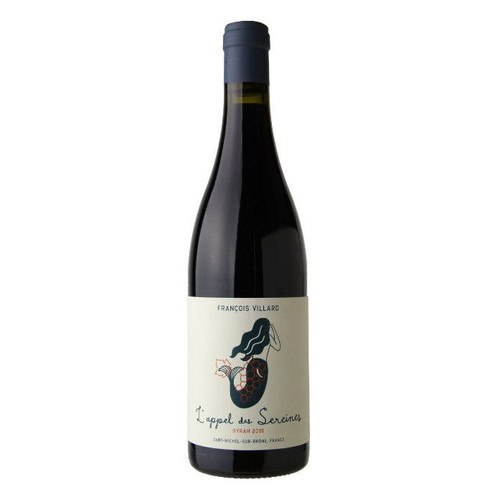Known as a Condrieu “Master,” François has grown his tiny domaine from four to seven hectares and still produces a miniscule
amount of highly allocated bottlings. Referred to by Robert Parker as one of the “stars” of the Northern Rhone, François has
recently acquired a small parcel in Cote-Rotie and a few hectares in St. Joseph. Formerly a chef, François brings his complex palette
to the winery to produce wines of power and grace that age for years.
The terroir of the Northern Rhone is, in a word, amazing. Fully exposed hillsides that face the East are covered with terraces first
created by the Romans. The soil is made up of small gravel and decomposed schist over a bedrock of granite. The exposition allows
for excellent ripening of the Viognier and Syrah grown on these coteaux and for exceptional water drainage (So much so that
terraces are always needing to be repaired.) The climate is warm with much cooler nights than those found in the South.
François Villard’s strategy is to allow for the most optimal ripening possible. His wines, as a result, are rich and concentrated with
complex aromas of peaches, apricots, honeysuckle, and honey for the whites and leather and spice for the reds. The whites are
often allowed to develop botrytis and most of the wines pass through wood ageing for an extended amount of time to prepare
them for a very long life in bottle.
The absurdly steep hillsides of the Northern Rhone mean that harvesting by hand is the only option open to winemakers. François
Villard and his crew harvest in very small baskets along extremely narrow terraces, making for backbreaking and dangerous work.
These baskets are then emptied into larger boxes to be taken down the hillsides by tractors, and in some cases, donkeys. The
results, however, are unrivaled.
Francois Villard Les Contours de Deponcins Viognier 2023 750ml
Domaine Francois Villard
$32.99
- SKU:
- DB3116-23
- Shipping:
- Calculated at Checkout
- Subcategory:
- Viognier
- Country:
- France
- Region:
- Rhône Valley
- Appellation:
- Collines Rhodaniennes
- Vintage:
- 2023
- Size:
- 750ml
- Raw Materials:
- Viognier
- Features:
- Organic






